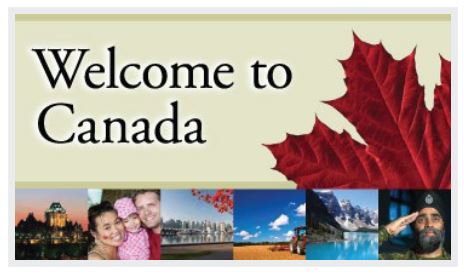The UN dismantles the ‘Canada fairy tale’: “It’s a breeding ground for contemporary slavery”
TORONTO – Far from being a “champion of human rights”: Canada has “laws and policies that enable the exploitation of vulnerable workers”, in Canada not everyone has the same rights, minorities lack protection and, more generally, Canada’s entire temporary foreign worker program constitutes “breeding ground for contemporary slavery”. We don’t say it, nor do some opposition politicians: the UN writes it down in a very harsh report drawn up by Tomoya Obokata, United Nations special rapporteur on contemporary forms of slavery.
The report (you can read it entirely here: ONU in Canada) arrives after a mission to Canada from 23 August to 6 September 2023, when the special rapporteur traveled to Ottawa, Moncton, Montreal, Toronto and Vancouver and met with representatives of governments at all levels, agencies and departments, organizations and unions, companies and workers, associations.
His goal was to evaluate “the Canadian government’s efforts to prevent and address contemporary forms of slavery, in order to identify best practices and current challenges”. His conclusions are a very serious act of denunciation, with a series of final recommendations to invite, in fact, the Canadian federal government to radically change all its immigration policies which represent, according to the special rapporteur himself, a sort of modern form of slavery.
The reference is, in particular, to the temporary foreign workers program, which puts the workers themselves at an unfair imbalance compared to the employers. In a nutshell, the program allows employers to hire foreign workers to fill temporary jobs when they are unable to find qualified Canadians: these foreign workers, therefore, enter Canada with a work permit which however is “closed”, that it means: they can only work for that employer and if, for any reason, they lose that job, they are “deported”, forced to leave Canada without even having the possibility of finding a new job.
This inevitably puts them in a position of extreme weakness towards the employer, who can actually put pressure on the worker and, in the worst case scenario, blackmail of all kinds. “The Special Rapporteur has received reports of underpayment and wage theft, physical, emotional and verbal abuse, excessive working hours, limited breaks, non-contractual work, uncompensated managerial duties, lack of personal protective equipment even in dangerous conditions… and women reported sexual harassment, exploitation, abuse” reads the UN report.
This is the situation, at the moment, of tens of thousands of people in Canada: the number of workers employed through this program has in fact grown significantly in recent years and if in 2018 the holders of this type of permit (the “work permit”) they were just over 84,000, in 2022 they were almost 136,000. All people with the “dream” of Permanent Residency (PR), the only way – in a similar system – to be able to improve their position, changing jobs and wages, and above all acquiring rights that they do not have in the condition of “temporary workers”. But PR is almost a mirage for most. In fact, the program in question – with the related path towards PR – is extremely cumbersome and unclear and, above all, it favors certain categories of people, effectively discriminating against others (“inclusive Canada”…).
The UN therefore calls on the Canadian government to end “the use of closed work permit regimes and allowing all workers the right the choose and change their employers in any sector without restriction or discrimination” and to ensure “that all migrant workers have a clear pathway to permanent residency from the time of their arrival in the country”. And these are just two of the dozens of recommendations contained in the report which, in fact, definitively dismantles the fairy tale of “Canada that welcomes and includes” and of the “thousand opportunities in Canada”. Maybe it was once, but not anymore. And the UN says so…
In the pic above, the slogan “Welcome to Canada” that stands out on one of the pages of the IRCC website (from https://www.canada.ca/en/immigration-refugees-citizenship/services/new-immigrants.html)



